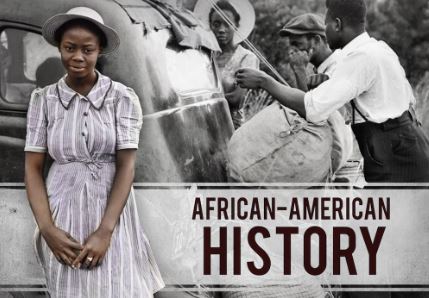New Database Helps Descendants of Enslaved People Trace Their Ancestry

A groundbreaking database is offering new hope to the descendants of enslaved people seeking to learn more about their ancestry. This innovative resource, which compiles historical records and personal stories, aims to bridge the gaps in family histories disrupted by the brutal legacy of slavery.
The Database’s Creation
The database, known as the “Enslaved Ancestors Legacy Project,” was developed by a team of historians, genealogists, and data scientists. By digitizing and indexing a vast array of historical documents, the project provides a searchable platform for individuals to explore their roots. The initiative is a collaborative effort between academic institutions, historical societies, and community organizations, reflecting a commitment to preserving and understanding African American heritage.
Accessing Historical Records
The database includes a wealth of records such as:
- Plantation Records: Documents detailing the lives of enslaved individuals on plantations, including labor records, birth and death registers, and correspondence.
- Freedmen’s Bureau Records: Post-Civil War documents created by the Freedmen’s Bureau, which assisted formerly enslaved people with legal issues, employment, and education.
- Census Data: U.S. Census records that can provide insights into family structures, locations, and changes over time.
- Slave Narratives: Personal accounts and stories collected during the 1930s by the Federal Writers’ Project, offering firsthand perspectives on the experiences of enslaved people.
Bridging Generational Gaps
For many African Americans, tracing ancestry has been a daunting task due to the lack of documentation and the deliberate erasure of identities during slavery. This database aims to fill those gaps, allowing descendants to piece together their family histories. By providing access to detailed records, individuals can uncover information about their ancestors’ lives, movements, and personal histories.
Empowering Descendants
The ability to trace one’s ancestry can have profound emotional and psychological impacts. For descendants of enslaved people, discovering their roots can be a powerful act of reclaiming identity and heritage. The database not only serves as a tool for genealogical research but also as a means of honoring and preserving the legacy of those who endured slavery.
Community Engagement and Education
The project also emphasizes community engagement and education. Workshops and training sessions are being held to teach individuals how to use the database effectively. Schools and educational programs are incorporating the resource into their curricula, helping students understand the importance of historical records and the impact of slavery on American history.
Expanding the Database
The Enslaved Ancestors Legacy Project is continually expanding, with ongoing efforts to digitize more records and include additional data sources. Collaborations with libraries, museums, and private collections are essential to growing the database and ensuring it remains a comprehensive resource for future generations.
Personal Stories
The database has already facilitated numerous personal discoveries. For instance, one user found records of an ancestor who was emancipated and later became a landowner, a story that had been lost over generations. These personal stories add a deeply human element to the historical data, transforming abstract records into meaningful narratives.
The Enslaved Ancestors Legacy Project represents a significant advancement in genealogical research for descendants of enslaved people. By providing access to a rich collection of historical records, the database helps individuals uncover their family histories and connect with their ancestral roots. This initiative not only aids personal discovery but also contributes to a broader understanding and appreciation of African American heritage.





